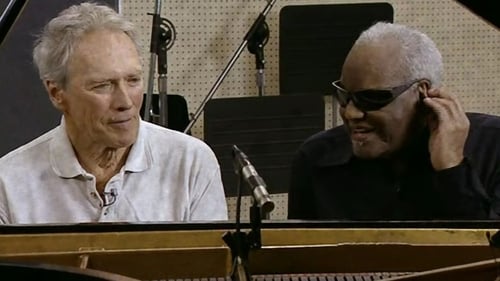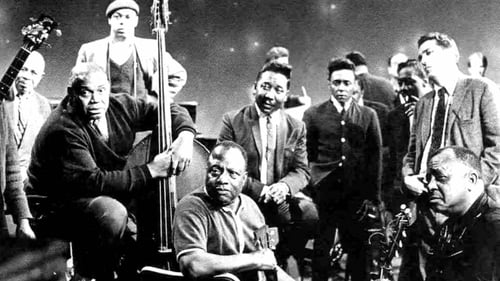
The Cop
A stranger offers people an opportunity to change their immediate future, an offer that could save them from danger.

Self
In the early 1960s, when Greenwich Village was bursting with a folk music revival, the Friends of Old Time Music made it their mission to introduce urban audience to some of the legends of pre-war American traditional music. After a 1961 series of concerts featuring Roscoe Holcomb, Clarence Ashley and Doc Watson, Alan Lomax invited the artists and a who’s who of the folk revival back to his West 3rd Avenue apartment for an impromptu song swap. Filming was arranged on the fly and a raw, many-layered evocation of the art and attitude of the period emerges from the footage, with some of the biggest names of the era, old timers and revivalists alike: Memphis Slim, Willie Dixon, Jean Ritchie, Ernie Marrs, Peter LeFarge, Ramblin Jack Elliott, Guy Carawan,the Greenbriar Boys, and the New Lost City Ramblers.

Himself

Self (archive footage)
Director — and piano player — Clint Eastwood explores his life-long passion for piano blues, using a treasure trove of rare historical footage in addition to interviews and performances by such living legends as Pinetop Perkins and Jay McShann, as well as Dave Brubeck and Marcia Ball.

Himself
Taken from the European tours organised for American blues musicians between 1962 and 1969, this release features performances by several popular blues artists, including: T-Bone Walker, Lightnin' Hopkins, Victory Spivey, T-Bone Walker ...

Himself
Taken from the European tours organised for American blues musicians between 1962 and 1969, this release features performances by several popular blues artists, including: T-Bone Walker, John Lee Hooker, Muddy Waters, etc.

Vocals, Stand-Up Bass
Willie Dixon: I Am the Blues captures the Rock And Roll Hall Of Fame member in the twilight of his career, during a 1984 concert with the Chicago Blues All-Stars in support. Among the highlights of the gig are a spunky rendition of Built For Comfort and the stirring, little-known composition Peace; its simplistic lyrics and heartfelt sentiments make it a bluesy first cousin to John Lennon's Give Peace A Chance. Interspersed with the great music are warm recollections from Dixon as he covers topics ranging from composing to his mid 1960s re-emergence in England via cover versions of his best material courtesy of The Rolling Stones and Cream (which featured long time admirer Eric Clapton).

In 1966, CBC Television invited some of North America's greatest blues performers to gather in a studio in Toronto, recording together and individually in sessions that lasted three days. The result was originally televised as part of the CBC "Festival" series, and now the session video tapes have been found, restored and re-edited. The great Muddy Waters and his band perform "You Can't Lose What You Never Had" and "Got My Mojo Workin'," the latter with James Cotton on harmonica. Willie Dixon goes solo on "Bassology" and (helped by a little '90s technology) performs "Crazy for My Baby" with host Colin James. Plus rare appearances by Sonny Terry and Brownie McGhee, Mable Hillery singing "How Long This Train Been Gone," and delta blues piano player Sunnyland Slim, introducing a whole new generation to this inspiring, soulful music.

Blues as a genre shaped the sound of jazz in the early 20th century and directly led to the creation of rock 'n' roll in the '50s. The scales, chords, and progressions of blues as a musical form can be found in styles from jazz to rock to contemporary R&B.

Willie Dixon
A kickboxer has an accounting problem with the mobster (Anthony Geary) who lent him money for a nightclub.

Known fondly as the "Queen of the Blues," Koko Taylor began singing in Chicago blues clubs in the 1950s. Her gritty, powerful voice attracted the attention of Willie Dixon, another famous Chicago blues icon and record producer. Her recording of Dixon's "Wang Dang Doodle" topped the R&B charts in 1966. This special, recorded in 1991 for WTTW, documents her history, and cements her legacy as a Bonafide Chicago Blues legend.

Original Music Composer
Jesse is nine months pregnant and lives with her underemployed husband Hank in a dilapidated mobile home in a rusty trailer park. During an afternoon of talk, Jesse discovers that Hank has been spending time with Bonnie, their young, bovine neighbour. Jesse is hurt and furious, and Hank is defensive, claiming that the baby has pushed him out. While Hank is elsewhere, the other woman pays a surprise visit to Jesse. Healing begins, and when Jesse's labour starts, it's Bonnie who comes to the rescue.

Self/Performer
In July 1974, a group of Chicago based blues artists who had already achieved legendary status gathered together with some of their younger "blues brethren" from all over the country to pay tribute to the man most responsible for bringing blues from the Mississippi Delta upriver to Chicago, Muddy Waters. Appearing with Muddy that night were his contemporaries Willie Dixon, Koko Taylor, Junior Wells and Pinetop Perkins, and from the next generation of blues lovers and performers, Mike Bloomfield, Buddy Miles, Johnny Winter, Dr. John, and Nick Gravenites -- all artists who were on their way to becoming legends themselves. What resulted from that joyous teaming was a truly historic session that not only presented some of the greatest blues classics ever written, but a never-to-be-forgotten hour that truly demonstrates the love of music by one generation for another.

UK TV Movie of blues performances from many of the greats.











